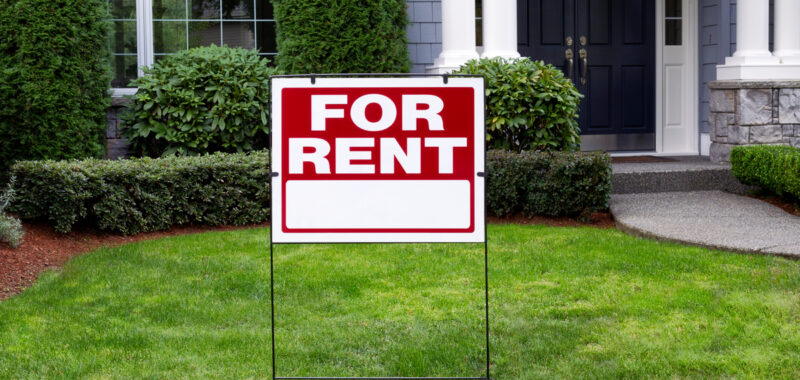Invitation Homes makes it easy to invest in rental properties.
Investing in a rental property can be expensive. When you add up the down payment, closing costs, repairs, and operating expenses, it could cost over $50,000 to purchase a property and get it ready to rent. Further, while rental properties can be a good way to generate passive income, unexpected expenses and vacancies can cause the income to be lumpy.
Another issue with rental properties is the lack of diversification. Given the high upfront costs, most people can only buy one property at a time.
Instead of putting all your eggs in one basket, you could consider a much more diversified (and lower-cost) alternative. Leading residential real estate investment trust (REIT) Invitation Homes (INVH 0.17%) owns and manages over 100,000 rental homes. Better yet, it only costs around $35 to buy a share of the REIT. Here’s a closer look at this great rental property alternative.
The leading rental property landlord
Invitation Homes is the largest REIT focused on single-family rental homes. At the end of the second quarter, the company had 84,640 wholly owned homes in its portfolio. It also owned interests in another 7,605 properties as part of joint ventures (JVs) with other investors. In addition, Invitation Homes managed 17,261 rental properties for other investors. Add it all up, and the REIT’s portfolio features over 109,500 properties.
The company’s portfolio spans 16 core U.S. markets, with 96% of its portfolio spread across the Sun Belt region. It focuses on markets where the population and jobs are growing faster than average. Those factors keep occupancy levels high across its portfolio, which drives strong rent growth and helps deliver healthy home price appreciation.
Invitation Homes steadily expands its portfolio, adding more diversification benefits for its investors. For example, the REIT launched a third-party management platform earlier this year, leveraging its in-house capabilities to earn additional income. Its initial deal added over 14,000 homes to the portfolio and another 3,000 homes to its management platform in the second quarter.
The REIT also recently invested $37.5 million in the Upward America JV with leading homebuilder Lennar and other investors. The company will own a 7.2% interest in this 3,700-property portfolio. It will manage those properties as well as another 700 homes.
Invitation Homes also continues to buy wholly owned properties. It spent $328 million to buy 700 homes this year. In addition, the REIT recently agreed to buy another 1,000 newly built homes directly from several national homebuilders for $274 million. It now has nearly 2,700 homes in its builder pipeline.
Growing rental income = rising passive dividend income
Invitation Homes’ diversified portfolio of rental properties produces steadily rising rental income. The REIT’s same-store net operating income rose 3.8% in the second quarter. The company’s diversification benefits were on full display during the period. The REIT’s income rose despite bad debt expense of 0.8% and a dip in its average occupancy rate to 97.5%. Contrast that to owning a single rental property where bad debt or a vacancy can quickly turn a money-making investment into a money pit.
Meanwhile, the REIT’s growing portfolio added to its income growth rate. Its adjusted funds from operations (FFO) rose 4.1% to $0.40 per share in the second quarter (up 5.4% this year) as new properties added to the portfolio supplied incremental income, enhancing the growing rental income from existing properties.
That cash flow supports the REIT’s quarterly dividend payment of $0.28 per share (a more than 3% income yield at the recent share price). At that yield, every $1,000 invested in buying Invitation Homes’ stock would produce more than $30 of annual passive dividend income.
Investors can bank on this income stream. Unlike the uneven rental income from a single property (which can rise and fall with expenses), Invitation Homes pays a fixed quarterly dividend that it typically increases each year (it raised its quarterly payment by 7.7% late last year). With more growth ahead, the REIT’s payout should continue rising.
Diversification pays steadier dividends
Buying a rental property could enable you to start collecting some passive income. However, this investment has a high upfront cost and might not produce reliable income. Because of that, a better alternative is to consider buying shares in Invitation Homes. The REIT has a much lower initial investment requirement and pays a very bankable dividend, partly thanks to strong diversification. Those features make it a great way to start collecting passive income from rental properties without buying one yourself.
Matt DiLallo has positions in Invitation Homes and Lennar. The Motley Fool has positions in and recommends Invitation Homes and Lennar. The Motley Fool has a disclosure policy.

